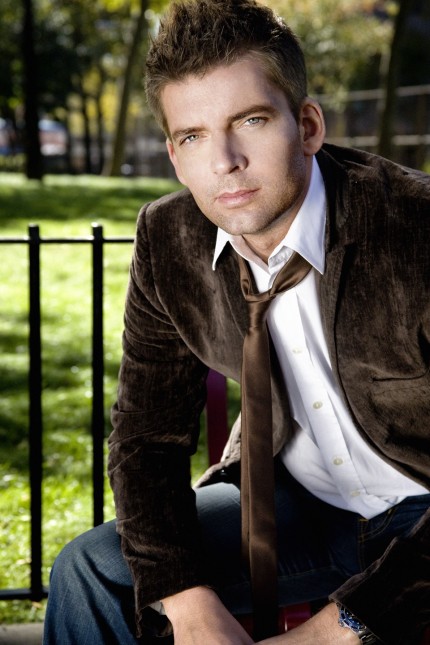Beethoven Festival calls it a wrap with Pintscher and “Pastoral”

The final concert of the ten-day, ambitiously packed and aggressively eclectic Beethoven Festival ended with a familiar symphony by the titular artist and a bracing work by one of today’s leading German composers.
Matthias Pintscher had opened the festival eight days earlier leading a performance of Bach’s St. John Passion at the Chicago Temple and the German composer-conductor concluded it Sunday evening at the same venue with Beethoven’s Pastoral symphony and Pintscher’s own Songs from Solomon’s Garden.
Pintscher introduced his work by noting that the text of the Song of Solomon offers the greatest love poetry ever written. Many would agree, and the passion, languor, sensuality and psychic anxiety of the texts found eloquent musical representation in his setting for baritone and chamber orchestra.
Pintscher’s music sounds like that of no one else. Written for chamber forces, piano and percussion, Pintscher’s score always feels like it is bring produced by much larger forces. Baritone David Govertsen was a solid if somewhat generalized advocate, and the composer led the festival’s Orchestra Prometheus Chicago in a fervent, atmospheric performance that powerfully conveyed the swirling crystalline textures, shimmering high percussion and acutely detailed hues of this fascinating score.
The persistent festival problem of lack of texts and translations unfortunately meant that audience members were only getting half the effect from Pintscher’s compelling score, since no one knew what Govertsen was singing.
The more familiar works on the second half proved more mixed. Launched with gamey cello intonation, Pintscher drew a flowing account of the Prelude to Wagner’s Tristan und Isolde.
So too, the ensuing performance of Beethoven’s Symphony No. 6 was fleet, vital and spirited with a notably characterful group of village musicians. Yet here too the performance was undermined by rough edges and ensemble lapses, with horn bobbles, uneven wind tuning and more intonationally challenged string playing.
Earlier in the evening, excerpts from James Whitbourn’s Annelies–The Diary of Anne Frank were heard. There are countless musical works based upon the horrors of the Holocaust and the more personal tragedy of Anne Frank, who perished at Bergen-Belsen.
Most, unfortunately, are not very good, and those that have proven successful tend to be intimate works for small forces like Marc Neikrug’s Though Roses or Michael Cohen’s I Remember, also based on Anne Frank’s diary.
Whitbourn’s chamber arrangement of Annelies—originally written for large orchestra—calls for solo soprano, clarinet, violin, cello, piano, and children’s choir. Yet even heard incomplete and in a chamber reduction Annelies tends to sprawl.
Without doubting the sincerity of the British composer’s work, the musical setting of excerpts from Frank’s diary, is cast in a crowd-pleasing tonal idiom but one that too often seems slick, calculated or just crass (as with the jaunty music-hall style of one of Anne’s whimsical diary entries). Overall, Whitbourn’s background as composer for TV and film seems all too apparent in the score’s lack of depth and musical complexity, especially with texts that call out for something more profound.
The musicians gave their best efforts. Laboring under a cold, Arianna Zukerman sounded scratchy in her lower register but gamely persevered, singing with feeling and crystal-clear diction. Clarinetist Bharat Chandra and the Lincoln Trio—recently named ensemble in residence at the Merit School of Music— brought out the klezmer coloring effectively.
Josephine Lee conducted the Chicago Children’s Choir with vigor and sensitivity, though the chorus’s numbers seemed far too large for the room and the chamber scale, and the performance would likely have profited by half the contingent. The young teens sang with exemplary clarity and expressive poise.
Posted in Performances




